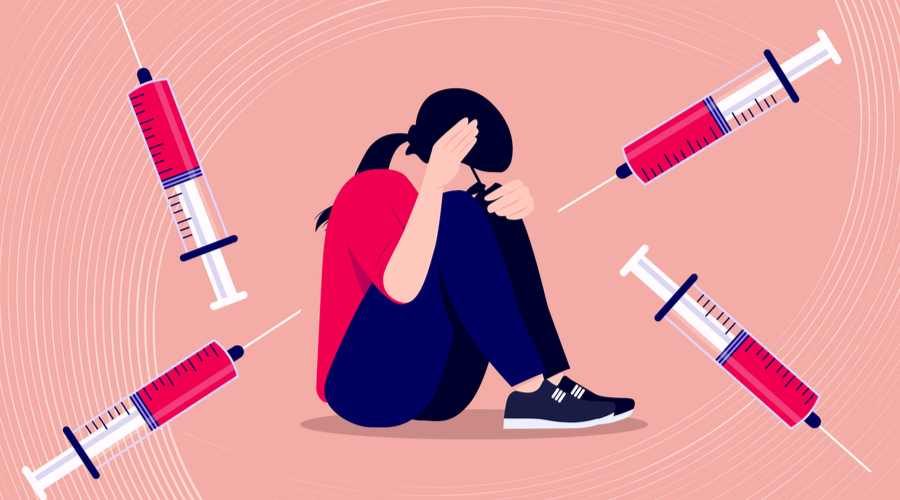Quality-Related Events (QREs) are incidents that compromise or have the potential to compromise patient safety, especially during the medication use process. However, you have the power to improve QREs. You can establish a positive safety culture by implementing continuous quality improvement (CQI) programs and engaging in ongoing education and training. A CQI program entails detecting, documenting, analyzing, and preventing QREs.
The most common QREs typically reported in your independent pharmacy include:
Dispensing Errors
These are among the most common and serious errors made in your pharmacy. They include:
- Dispensing the wrong drug
- Dispensing the wrong strength or dosage
- Dispensing an incorrect quantity
- Putting the wrong directions on the label
- Putting the wrong patient’s name on the label
Labeling & Documentation Errors
Serious errors that lead to patient confusion or misuse, like:
- Mislabeled auxiliary labels
- Wrong or missing warning labels
- Errors in medication guides or counseling points
Prescription Interpretation Errors
Slip-ups when transcribing or reading the Rx, such as:
- Misreading poorly written prescriptions
- Grabbing the wrong medication due to similar names
- Miscommunication with prescribers
Drug Interactions or Contraindications Missed
Failing to catch interactions, allergies, or contraindications, including:
- Dispensing a drug the patient is allergic to
- Failing to catch a serious drug-drug interaction
- Disregarding age-specific or condition-specific risks
Storage or Inventory Errors
These can impact drug access or purity, like:
- Outdated or expired medications dispensed
- Medication stored at incorrect temperatures
- Drugs placed in the wrong bin
Near Misses
Mistakes that are caught before reaching the patient, such as:
- Incorrect medications selected but caught during verification
- Barcode alert catches mismatch
- Patient questions something that leads to an error being corrected
Failures in Communication
Trouble with prescriber, patient, or staff communication, like:
- Misunderstood verbal orders
- Failure to communicate important instructions to the patient
- Missed counseling opportunities for high-risk meds
Staffing or Workflow Issues
Can lead to other errors or unsafe shortcuts, including:
- Inadequate double-checking during busy shifts
- Rushing due to understaffing
- New or untrained staff unfamiliar with local systems
As an independent pharmacist, you can improve your QREs by promoting a positive approach to safety, implementing continuous quality improvement (CQI) programs, and engaging in ongoing education and training. With a CQI program you can detect, document, analyze, and prevent QREs with an end goal of preventing medication errors. Here’s how:
Create a safety-first environment. That way, your staff can report QREs without feeling scared of blame or being punished. Make it a point to discuss QREs regularly.
Set up Quality Assurance (QA) meetings with your staff. Then you can discuss such things as reported risks, lessons that were learned, and any actions taken. Errors are an inevitable part of being human, so focus on learning from them to prevent future occurrences.
Consider a Patient Safety Organization (PSO). They can provide legal protections for quality and safety programs. They also offer strategies to improve reporting cultures and to help learn from QREs.
Start Continuous Quality Improvement (CQI) Programs. Assign individuals to monitor CQI program compliance. Then, establish a system that can identify, document, and analyze QREs. You can also implement processes to minimize patient impact of QREs.
Analyze data that’s related to QREs and identify root causes and contributing factors. Then create and put forth corrective action plans that are based on the analysis of QREs. It’s also important to offer regular training to staff on CQI and processes for preventing QREs.
Keep Education and Training Ongoing. Provide regular training for your staff on CQI and processes to prevent QREs. It’s also important to stay informed on the latest guidelines and best practices for medication safety and QRE prevention.
Include Medication Adherence. Be sure to provide your patients with counseling and support to reduce the risk of QREs.
Do you know that QREs of Special Interest provide the greatest learning opportunities to reduce risk and help improve the safety of the pharmacy’s systems? It’s true. Leaderships’ responsibility is to develop and promote policies and procedures that define QREs of Special Interest as reportable events that have one or more of the criteria in the sidebar below.
Remember, every day is an opportunity to improve skills like medication reconciliation, checking for drug interactions, and patient counseling. Ask for feedback from your patients and staff. This will help you see what needs improvement in QRE reporting and learning.
QREs of Special Interest Meet at Least One of the Following Criteria:
Learning Opportunities
Incidents, unsafe conditions, or near misses as identified by the reporter
Unexpected Side Effects/Interactions
Effects or interactions that are not listed in the product labeling
Harm Events
Events that cause harm to patients, employees, or any individuals exposed, regardless of whether the harm was preventable
Reach the Patient
Issues related to medication or devices that directly impact the patient
Pharmacy Interventions
Instances when pharmacy interventions identified good catches or near-misses with the potential to cause harm was preventable
Unsafe Conditions
Circumstances that increase the likelihood of a QRE occurring, including workplace hazards, technology/equipment issues, product labeling/packaging problems
Product Defects
Problems such as quality issues, contamination, and equipment/device malfunctions
HIPAA-Related QREs
Unauthorized disclosures of Protected Health Information (PHI) that reach the patient or any PHI data loss or breach
Mandatory External Reports
QREs required to be reported to state or other regulatory bodies
(Source: The Alliance for Patient Medication Safety)
A Member-Owned Company Serving Independent Pharmacies
PBA Health is dedicated to helping independent pharmacies reach their full potential on the buy-side of their business. Founded and run by pharmacists, PBA Health serves independent pharmacies with group purchasing services, wholesaler contract negotiations, proprietary purchasing tools, and more.
An HDA member, PBA Health operates its own NABP-accredited warehouse with more than 6,000 SKUs, including brands, generics, narcotics CII-CV, cold-storage products, and over-the-counter (OTC) products — offering the lowest prices in the secondary market.












